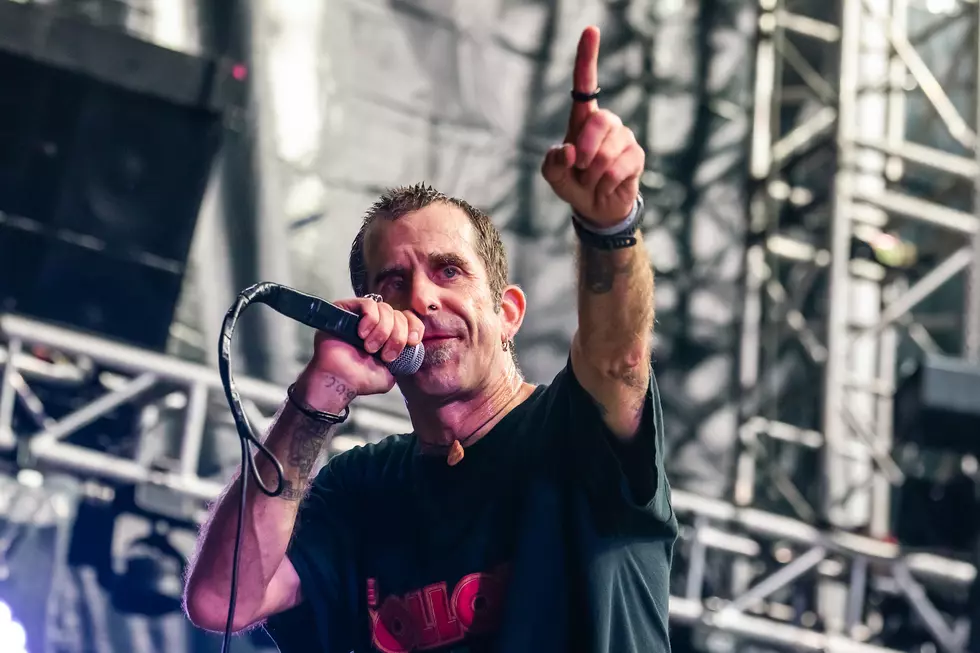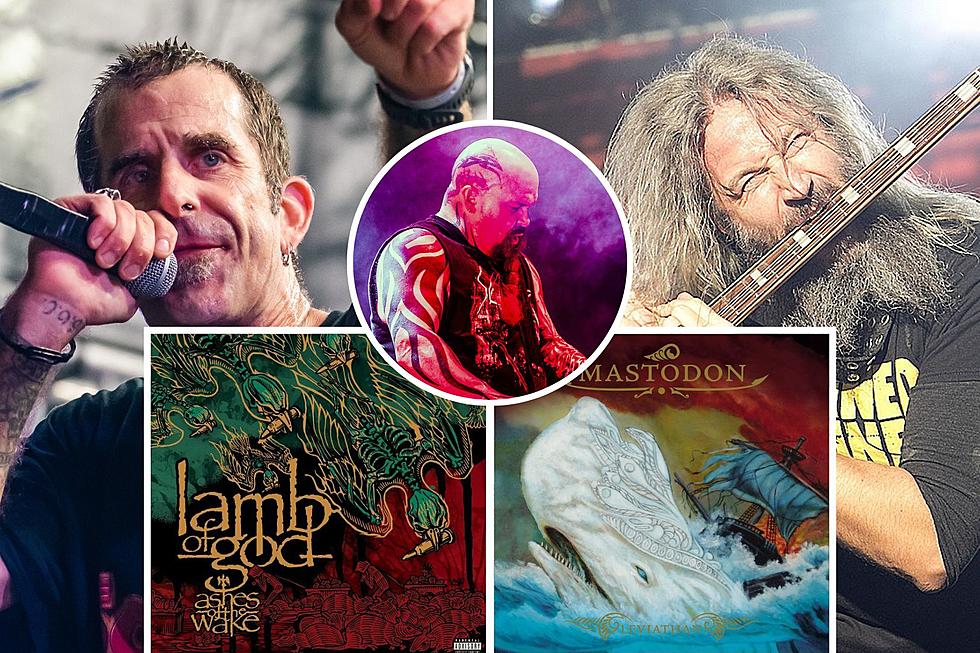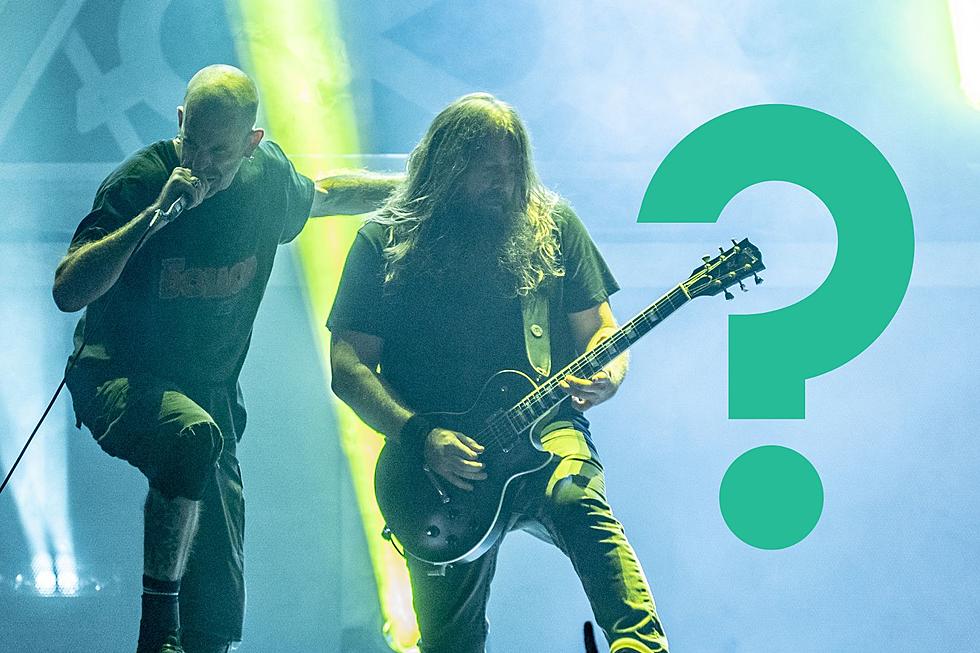
Lamb of God, ‘VII: Sturm und Drang’ – Album Review
For over two decades (counting their five years as Burn the Priest), Richmond, Va., modern metal pioneers Lamb of God have created visceral, rhythmically complex songs influenced by thrash, hardcore and Pantera-style power groove. On each of their seven albums, the band delved into various riffing techniques, angular guitar lines and screamed vocal styles and created some classic and influential albums, including 2003’s scathing, political As the Palaces Burn and 2009’s raw, aggressive Wrath.
But it took the imprisonment of frontman Randy Blythe in the Czech Republic on bogus manslaughter charges, and the realization that, had he been found guilty he could have done 10 years of hard time, to seriously rattle Lamb of God’s foundation and inspire them to write as if their next record might be their last. VII: Sturm und Drang consolidates all of Lamb of God’s strengths -- car-crash intensity, accomplished musicianship and meaningful subject matter -- and then adds unexpected flourishes, including talk box guitar (“Erase This”), clean vocals (“Overlord”), spoken word parts (“Delusion Pandemic,” and “Torches”) and guest vocals from Deftones’ Chino Moreno (“Embers”) and Dillinger Escape Plan’s Greg Puciato (“Torches”). The result is as satisfying as Lamb of God’s earlier chug-and-stomp releases while reaching a higher plateau of craftsmanship due to the unpredictability and eclecticism of the songwriting, which ranges from bluesy doom to full-throttle thrash.
VII: Sturm und Drang is a loose concept album, but it’s not the one fans might have been expecting. Blythe worked on the lyrics for two songs while he was in prison -- “Still Echoes” and “512” -- and the latter is about the psychological changes prisoners experience when they know they’re not getting out any time soon. But that being said, VII: Sturm und Drang is not Lamb of God’s At Folsom Prison. Instead, Blythe explores how people react in extreme situations, from oppressed individuals who set themselves on fire (“Torches”) to a public that’s kept in a constant state of near-panic by the mass media (“Engage the Fear Machine”).
And though Lamb of God use melody in a more profound way than they have in the past, the songs are all still as brutal as a back-alley gang beating. Drummer Chris Adler’s acrobatic beats are like a fusillade of kicks to the ribs, Mark Morton and Willie Adler’s crunching guitars and squealing fills are heavy as a mausoleum and their licks ensnare like giant fish hooks and Blythe’s vocals range from red-faced to demonic.
For those who didn’t major in literature, Sturm und Drang was a German art movement in the 1800s pioneered by the writer Johann Wolfgang von Goethe, and the phrase translates to “Storm and Stress.” It’s the perfect title. From the opening track, “Still Echoes,” the hurricane begins with a vengeful gale. Eight seconds into a corkscrew riff, a torrent of death metal blast beats and acrobatic drum fills burst forth -- a wakeup call to anyone expecting anything less than a full-fisted attack. A minute in, the ghost of Jeff Hanneman arises, and possesses the guitarists for a trademark Slayer minor-key twin-guitar harmony before another volley of blast beats shatters the atmosphere.
“Anthropoid” drops the tempo to a mid-paced surge and includes atonal guitar chords and scratchy guitar muting along with more traditional playing. Instead of a solo there’s an echoey, atmospheric series of repeated notes along with a surreal, swirling series of words that sound like they were recorded backwards. Elsewhere, “Engage the Fear Machine” starts with a martial beat and ends with an acoustic arpeggio over a death march, “Embers” features clattery, industrial sounding drums before the EQ levels off and the band are back at a locomotive chug. Later, Chino Moreno’s ghostly vocals juxtapose with Blythe’s corporeal roar.
Any serious review of VII: Sturm und Drang would be incomplete without addressing “Overlord,” in which Lamb of God trumps Pantera’s lauded “Cemetery Gates” by delivering a haunted, bluesy power ballad (or as close as they’ll ever come to that). Those who listened carefully to the band’s last album, and remember “Insurrection” know Blythe can carry a tune, he just usually chooses not to. The exception is “Overlord,” which opens a world of future possibilities. The song begins with a dusky, bluesy guitar part before Blythe comes in singing in a mournful vibrato. Come the bridge, the band are playing a gloomy Alice in Chains-style progression, and not only is Blythe harmonizing with himself, he’s overlapping his melodies with snarling rasps, raising the tension level of the song. In a skillful display of dynamics, the middle section is as loud as an airplane take off, then the band returns to the harmony-rich chorus and ends again with a burst of aggression.
If there was justice for all, “Overlord” would do for Lamb of God what “One” did for Metallica. In today’s era of vacuous pop singles though, that’s not likely. But if nothing else, Sturm und Drang showcases Lamb of God dropping their guard, leaving their comfort zone and going for broke. Even the German Olympic bobsledding team couldn’t do better.
Lamb of God's new album 'VII: Sturm und Drang' is available at the band's merch store, iTunes or Amazon.
Lamb of God's Randy Blythe Plays 'Wikipedia: Fact or Fiction?'
See How Old Randy Blythe and Other Rock Stars Are in This Birthday Gallery
More From Loudwire









